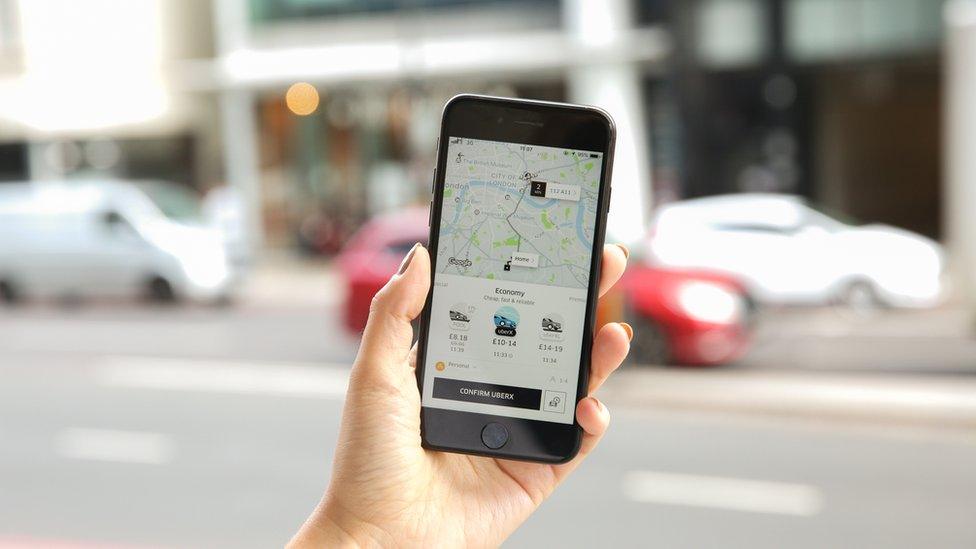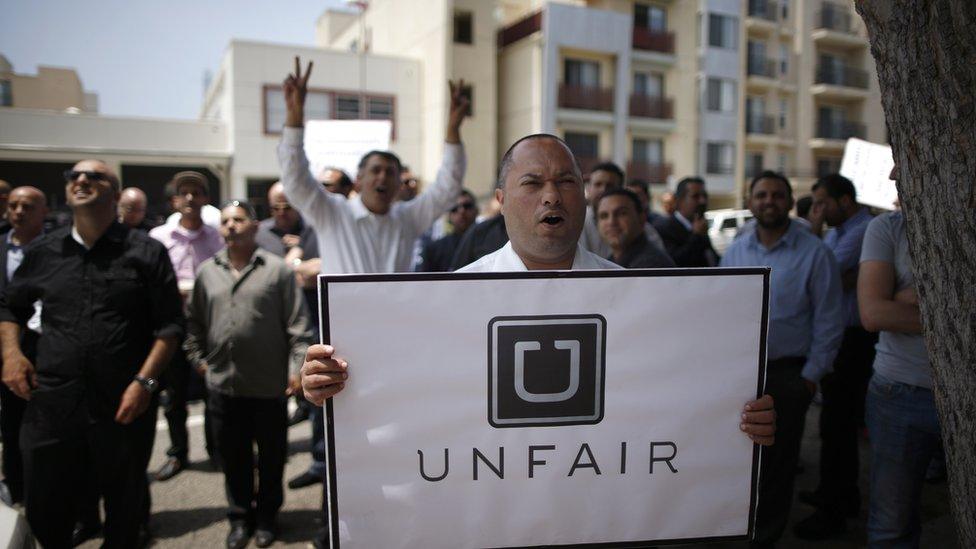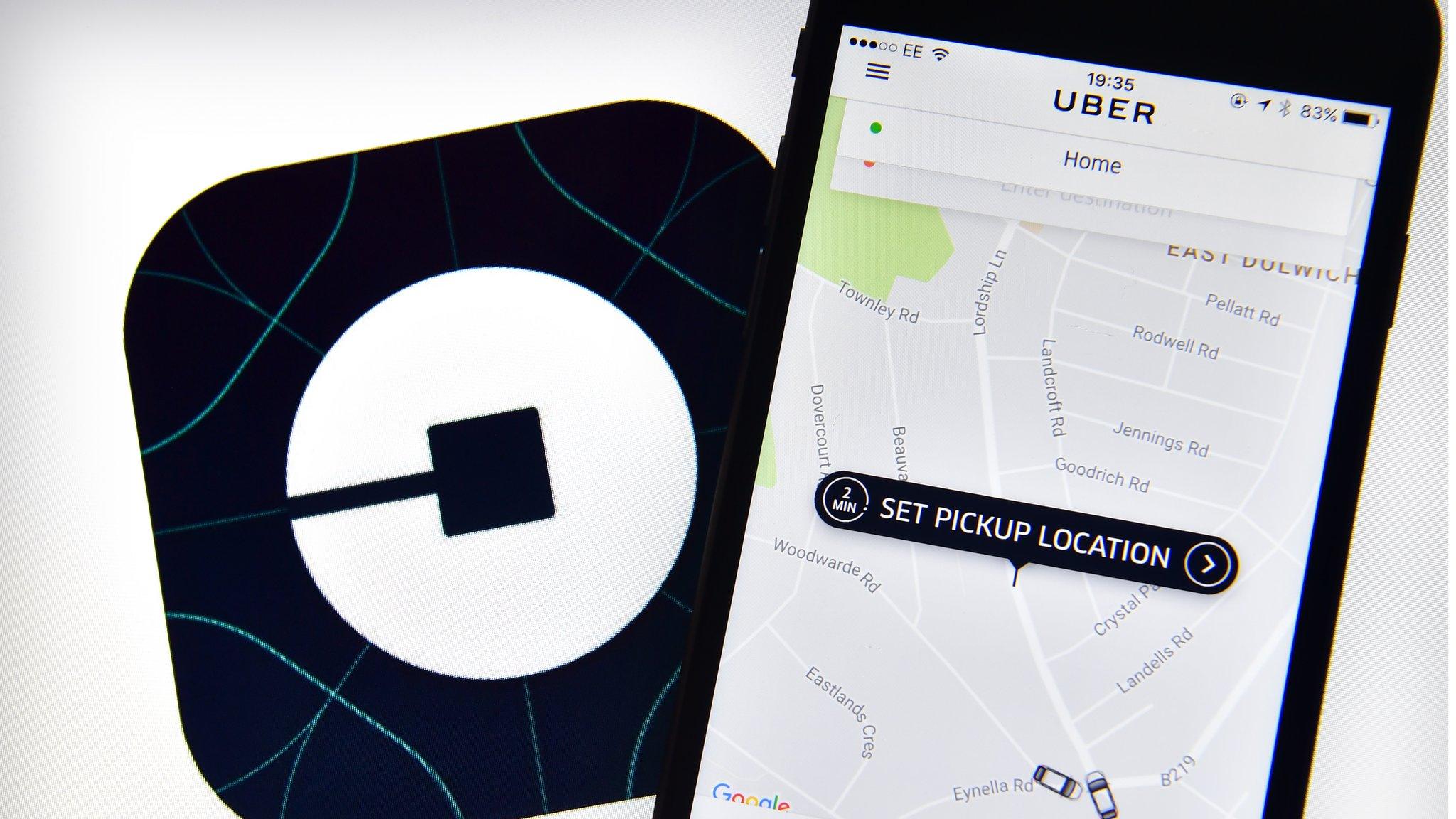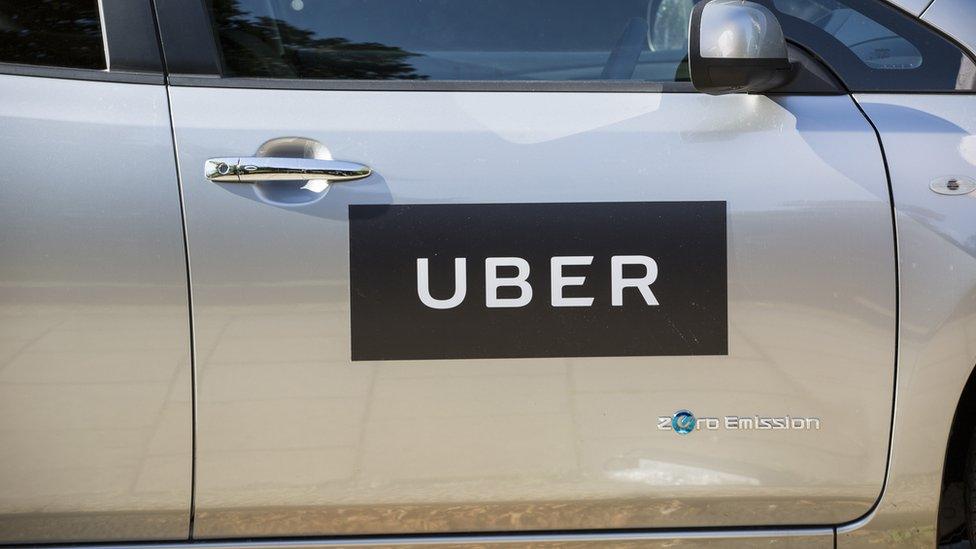Uber gives drivers sick pay and parental leave
- Published

Ride-hailing firm Uber will give its European drivers access to medical cover and compensation for work-related injuries.
The new protections include sick pay, parental leave and bereavement payments.
Uber said it previously "focused too much on growth and not enough on the people who made that growth possible".
"We called drivers 'partners', but didn't always act like it," said Uber's chief executive Dara Khosrowshahi.
The insurance and compensation package will be available to all Uber drivers and Uber Eats delivery couriers across Europe.
However, unions have questioned whether the package is new.
In April 2017, Uber announced illness and injury insurance cover for its drivers.
'Not nearly enough'
Uber drivers who wanted to join the scheme were required to pay £2 a week.
"I'm highly suspicious - is this a revamp, is this another bite of the cherry to make themselves look caring. What's the story here?" said Steve Garelick, regional organiser for the gig economy and transport for GMB union.
James Farrar, chair of the United Private Hire Drivers branch of the IWGB union, told the BBC: "This is not nearly enough. We have statutory rights under the law. What Uber has given us are cosmetic benefits that can be taken away at any time."
Uber's announcement comes before an appeal hearing at Westminster Magistrates Court on 25 June, where a judge will decide whether Transport for London (TfL) should renew Uber's private hire operating licence in London.
TfL withdrew Uber's operating licence in September on the grounds of "public safety and security implications".
Uber has been allowed to continue operating in the city while it appealed against the decision.
Uber said it will provide drivers with a range of insurance coverage and compensation resulting from accidents or injuries that occur while they are working, as well as protection for "major life events" that happen whether the driver is on a shift or not.

Analysis: Rory Cellan-Jones, technology correspondent
Ever since Dara Khosrowshahi took over as CEO last August he has tried to project an image of a kinder gentler Uber - in marked contrast to the "take no prisoners" approach of his predecessor Travis Kalanick.
That conciliatory style is evident in this move which Mr Khosrowshahi paints as Uber being "a better partner" and "a better listener".
Drivers are not going to get the kind of benefits they would enjoy as employees but there will be a little something to help them deal with life's ups and downs. But this should all be seen in the light of the looming court hearing in late June over Uber's licence to operate in London.
That is expected to hinge not on whether TfL was right to deny the firm a licence last year, but whether it has become a fit and proper business since then. Uber executives are hoping that its actions over the last six months will convince the court that the leopard has changed its spots.

Rebecca Long Bailey MP, Labour's shadow business secretary, said: "This decision is long overdue and we hope that it is more than simply a PR move to repair their public image.
"Uber and companies like it must put an immediate end to exploitative practices and ensure that their workers have full access to their legal rights, such as the minimum wage."
Mayor of London, Sadiq Khan welcomes "any commitment to give drivers and couriers in London more security" according to his spokesperson.

Uber drivers have been fighting for better working conditions since 2014
Uber drivers in the UK have been campaigning for better rights for at least three years, external.
In October 2016, a tribunal ruled that two UK-based Uber drivers should be classed as staff, not self-employed workers, and entitled to holiday pay, paid rest breaks and the minimum wage.
Uber appealed against the decision, arguing its drivers were self-employed and were under no obligation to use its booking app, but in November 2017, the Employment Tribunal upheld its original decision that any Uber driver who had the Uber app switched on was working for the company under a "worker" contract.
Uber continues to appeal against the Employment Tribunal decision and the next appeal hearing will be held on 30 October.
Mr Farrar said that Uber should drop its appeal and recognise trade union representation for drivers, if the ride hailing firm wants to show it really does care about driver welfare.
In the US, Uber drivers continue to fight in court for the right to be classed as workers.
- Published22 May 2018

- Published10 November 2017
